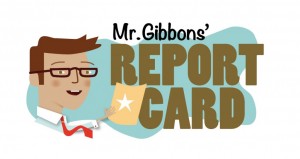New Hampshire Attorney General’s Office

Croyden School District in New Hampshire has just 37 students in grades 5-12 and no middle or high school for them to attend. As a result, it allows parents to choose schools in other districts, including private schools. The State’s Attorney General Office has now sued to stop Croyden from sending five students to a Montessori private school.
In response, Croyden raised $20,000 to defend the district’s school choice policy.
Interestingly, the five students attending private schools are also helping to save about $19,000 for Croyden taxpayers, as their school is actually cheaper than neighboring public schools.
Grade: Needs Improvement
Mamie Hall
After ten years of ups and downs as a public school teacher, Mamie Hall has had a change of heart about charter schools. When she first started teaching, Hall believed charter schools were bastions of conservatism that stole resources from district schools, but a decade later she’s teaching at one. Hall documents the change in her views through an opinion column, “Why I left NC district schools to teach in a charter school.”
The article documents her experience with freedom and experimentation as a classroom teacher. Now a veteran teacher, she wants school districts and charter schools to work together:
“My hope is that we can break down the current barriers that exist between large district and charters, learn from each other and help all teachers love their jobs and provide quality education for their students the way I can.”
Grade: Satisfactory
Wanda Dingwall and the CTBA
Wanda Dingwall, a retired educator from Sparks, NV, has repeatedly attacked Nevada’s new education savings account program in the pages of the Reno Gazette Journal. Now she argues private school choice programs have “failed in the 21 states that have used them.”
With 21 “failing” voucher programs to choose from, Dingwall must have a ton of great evidence. She claims voucher students in Ohio, Wisconsin and Indiana “do not perform better than students enrolled in public schools. In general students in public schools outperform those enrolled in private schools.”
Her source is an unsigned report on Indiana’s tax credit scholarship program by the Center for Tax and Budget Accountability (CTBA). Curiously, the report doesn’t actually contain any actual data on student achievement in Indiana. In fact, the report merely speculates on the results based three cherry-picked and misread reports, one of which doesn’t even examine school vouchers.

For Ohio, the CTBA study cited a report that was unable to control for the student’s household income and still found mixed achievement gains. The CTBA, despite claiming objectivity, ignored a random-assignment study that found achievement gains for African-American students in math. When examining the results from Wisconsin the group must have also misread a University of Arkansas study, because that report showed statistically significant reading achievement gains, higher graduation rates and college attendance rates for voucher students in Milwaukee.
Dingwall and the CTBA have a peculiar definition of “failure.” I doubt the dictionary at the Sparks Public Library would agree.



